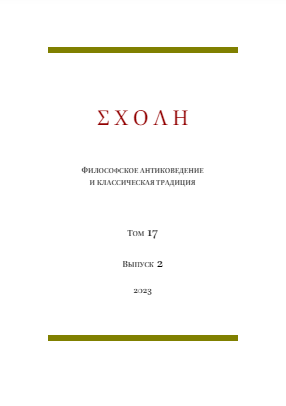Наблюдение Аристотеля об иллюзии последействия движения в современном знании о восприятии времени и движения
Aristotle's observation of the illusion of the motion aftereffect in modern knowledge of the perception of time and movement
Author(s): Alina ZaykovaSubject(s): Metaphysics, Epistemology, Ancient Philosphy
Published by: Новосибирский государственный университет
Keywords: Aristotle; time; time perception; perception; temporal consciousness; consciousness; waterfall illusion; motion aftereffect;
Summary/Abstract: In his work De Insomniis, Aristotle pointed out that after observing motion, objects at rest appeared to move. In modern literature, this effect, called the "waterfall illusion" or "the motion aftereffect", is widely researched and explained both scientifically and philosophically. Most researchers consider in the first place why this happens and what it means. This allows us to put forward new hypotheses and argue in favor of existing theories, in particular, thanks to the waterfall illusion, a hypothesis about multi-threaded data processing by neurons was proposed and some features of the work of adaptive perception mechanisms were demonstrated. At the same time, the implicit and unreasoned choice of a specific method of explanation to assert the advantages of a certain model while neglecting other empirical experience may be a methodological error, which can be seen in the example of S. Prosser's concept of dynamic frames.
Journal: ΣΧΟΛΗ. Философское антиковедение и классическая традиция
- Issue Year: XVII/2023
- Issue No: 2
- Page Range: 980-992
- Page Count: 13
- Language: Russian

